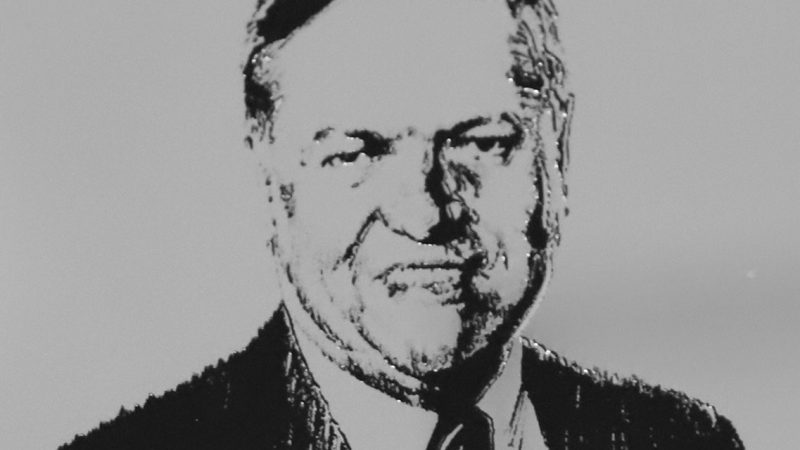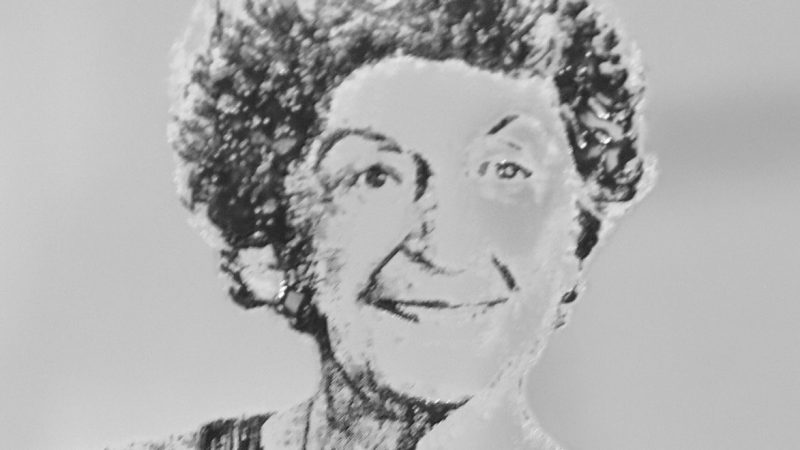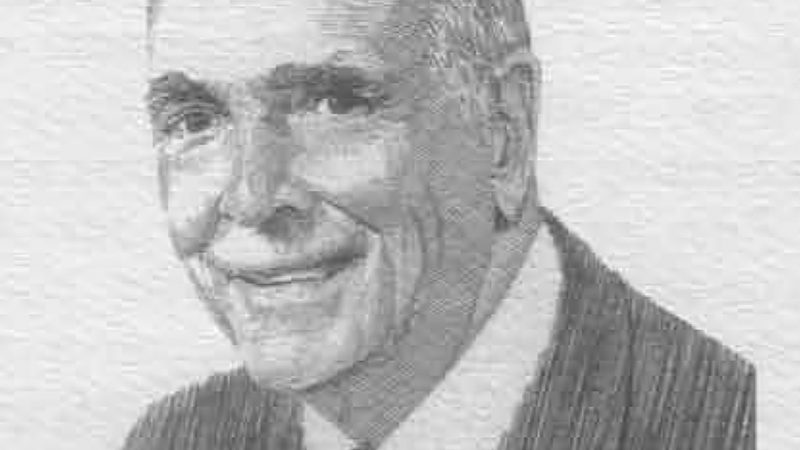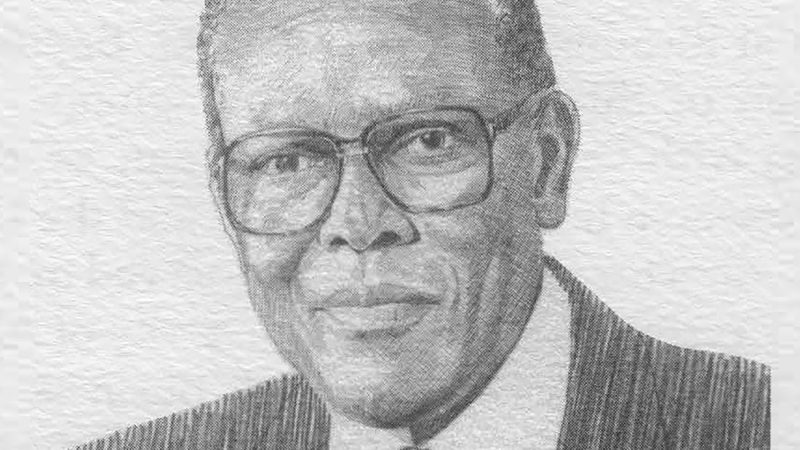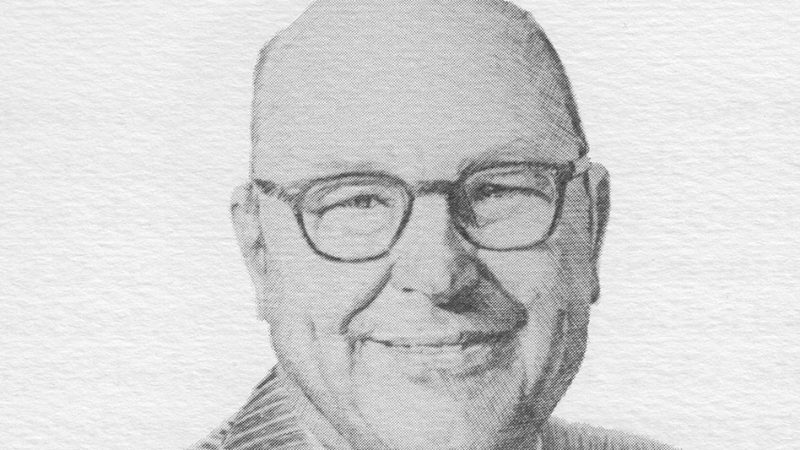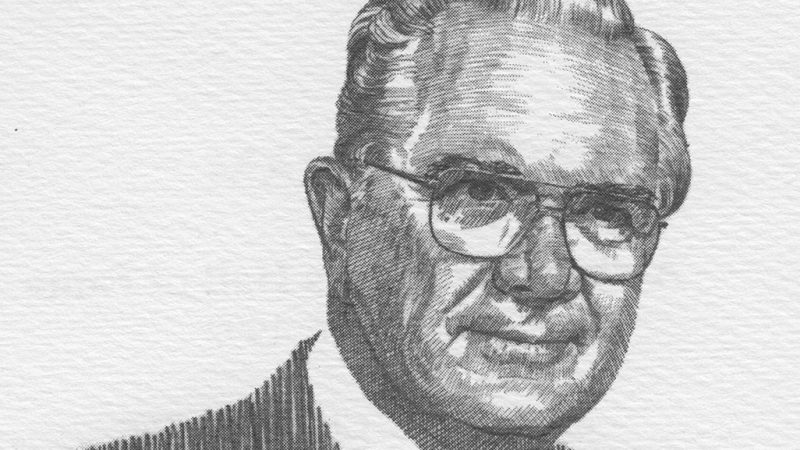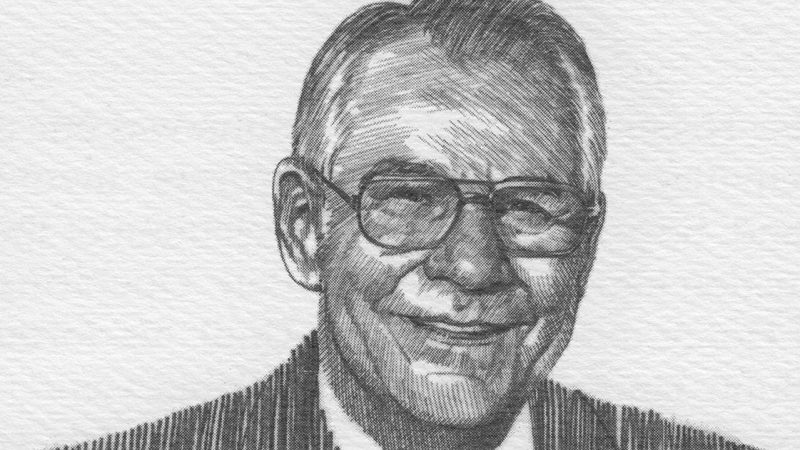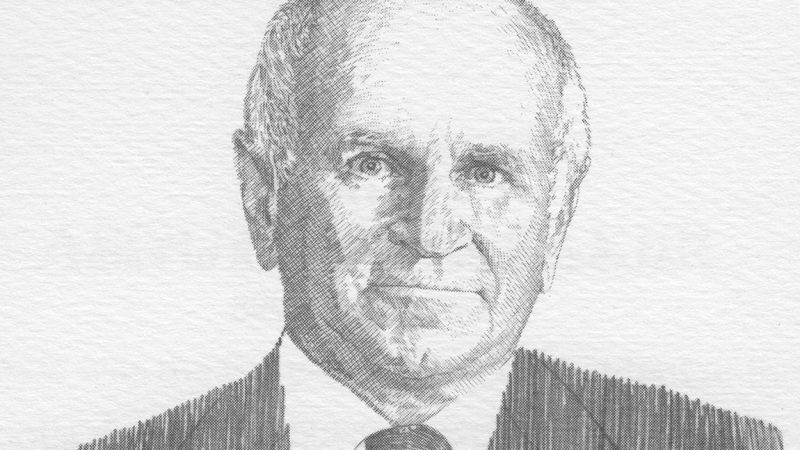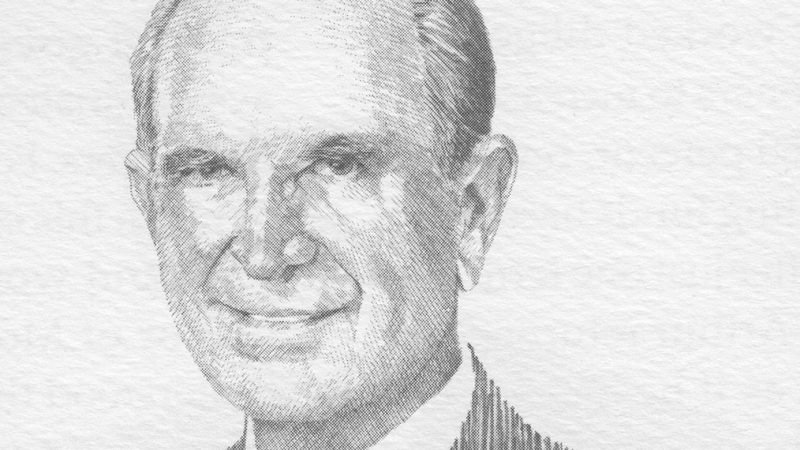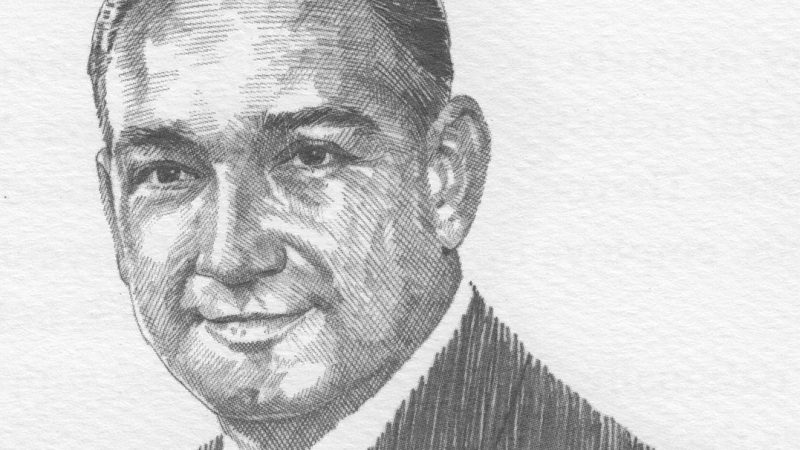William R. Ireland has been described as “one of the best friends the environment of Alabama has ever had.” That friendship can easily be expanded to include education, volunteerism, philanthropy, athletics, and business, for he has been a true and valued friend to all.
Born December 3, 1923, to parents Katharine Lenora Reynolds and Charles Byron Ireland in Gadsden, Alabama, Ireland would embark on a 39-year career in his family’s business, Vulcan Materials, which has become the nation’s leading supplier of construction aggregate and a leading manufacturer of chemicals. And he also would leave an indelible mark on the history of environmental protection in the state of Alabama.
Ireland is a true Son of the South. He received his education in the public schools of Birmingham and was graduated from the Baylor School in Chattanooga, Tennessee. He then began his college career at Auburn University and later transferred to Marion Military Institute. After his second year at Marion, he entered the U.S. Navy and served from 1943 until 1946.
When he returned home from the navy, Ireland joined the family business. The predecessor of Vulcan Materials, Birmingham Slag Company, had been purchased by the Ireland family in 1916. Birmingham Slag produced aggregate for making concrete, for highway and railroad beds, and much of the aggregate came from waste produced by the Birmingham mills of U.S. Steel’s Tennessee Coal and Iron and Republic Steel.
During his career with Vulcan, Ireland was president of two Vulcan subsidiaries, executive vice president of the Midwest division, manager of community relations, and for 29 years a member of the company’s board of directors.
The success of the Ireland family and Vulcan Materials was featured in the Feb. 14, 1959, issue of Business Week under the headline, “Invasion From the Deep South.” The article detailed the expansion of Vulcan Materials from the piney hills of Alabama, Georgia, Mississippi, and Florida into the North and the Midwest.
Through the Ireland family’s leadership, Vulcan Materials has always been an outstanding corporate citizen deeply committed to the needs of the Birmingham community and those of Alabama as a whole.
Active in the business, civic, and cultural affairs of Birmingham, Ireland has been known for its generosity to worthy causes. He has served as chairman of the C.B. Ireland Foundation, as a board member of the Birmingham Area Council of Boy Scouts of America; chairman and board member of Big Brothers and Big Sisters of Greater Birmingham; board member and President of the Lurleen B. Wallace Memorial Foundation; board member of the UAB Comprehensive Cancer Center Supporters; board member of the American Cancer Society – Alabama Division; board member, president and chairman of the board of the American Cancer Society-Jefferson County; board member of the Baylor School; president and board member of the Alabama Wildlife Federation; board member of the Alabama Sheriff’s Boys and Girls Ranches; chairman of the Community Chest, Builders Division, and Alexis de Tocqueville Society of United Way – Jefferson County; chairman of special gifts, Alabama Heart Association; member of the UAB Comprehensive Cancer Center Statewide Steering Committee; and co-chairman of the UAB Capital Campaign Metro Region Steering Committee.
Ireland has received the Distinguished American Award from the National Football League and Hall of Fame – Alabama Division, and the 1981 Citizen of the Year Award from the Alabama Broadcasters Association.
Marion Military Institute, where he served as Chairman of the Board of Trustees, has always been close to Ireland’s heart and he has labored mightily to help the school. His efforts were recognized in 1991 when the Institute named its athletic center in his honor. In 1942, Ireland was the center on MMI’s football team when it played The University of Alabama freshmen. MMI lost 33-6, but Ireland scored MMl’s only touchdown on a 65-yard pass interception.
In 1948, Ireland married Fay Belt of Birmingham, who has shared his love of the outdoors and his dedication to education. The Irelands have five children and thirteen grandchildren.
The Irelands have given graciously of their time and resources to many educational institutions. Auburn University has established the William R. and Fay Ireland Distinguished Scholarship in the College of Sciences and Mathematics, and the Ireland Fisheries Laboratory at Auburn bears his name. The family also has given generously to Baylor and Birmingham-Southern, including the establishment of the Baylor-Ireland Scholarship for a graduating senior at Baylor who wishes to continue at Birmingham-Southern.
Ireland has been an active outdoorsman his entire life – hunter, fisherman, and guardian of the environment. His retirement from Vulcan Materials in 1982 gave him more time to devote to the state’s wildlife resources.
In 1992-93 he served with distinction as President of the Alabama Wildlife Federation and served on the organization’s board of directors and its executive committee for many years. The organization’s headquarters building in Montgomery is named in his honor.
He is a life member of The Gulf Coast Conservation Association, The Nature Conservancy, the National Audubon Society, and the National Wild Turkey Federation.
He is a Benefactor Member of Ducks Unlimited (Canada, United States, and Mexico) and serves on the organization’s board of directors as an honorary member. He also serves on the boards of directors for the Alabama Wildlife Endowment, the Cahaba River Society advisory committee, and the Alabama Wildlife Rescue Service. All of these organizations frequently turned to Bill Ireland for advice and support, particularly in their fledgling years. Never were they refused. His activities currently include serving as Alabama chairman of the Southern Environmental Law Center’s capital campaign.
Continuing his love of the outdoors and its denizens, he has developed fish and wildlife showplace on “Wild Acres,” his farm in Shelby County, and he is active in the renovation of “Five Star,” the plantation in Coosa County that was formerly the site of The University of Alabama conference facility.
But perhaps his defining moment in the service of the environment was his leadership role in the development and successful approval of the state’s Forever Wild Constitutional Amendment.
For the first time in the history of Alabama, a state-funded program was established to acquire land throughout the state to be used for conservation and recreation purposes.
Over the next twenty years, the Forever Wild program will provide up to $350 million for land acquisition and stewardship, a huge step toward ensuring that future Alabamians will be able to enjoy the outdoor life.
Ireland’s gracious manner, his honest approach, his enthusiasm, and his obvious love for the Alabama outdoors allowed him to weld into an effective coalition a diverse committee of hunters, environmentalists, fishermen, state agency representatives and representatives from the forest industry and the corporate world, who together forged an acceptable piece of legislation.
And after the Legislation was approved, he took on the job of raising money to finance the voter education effort necessary to ensure voter approval of the bill. The result? An overwhelming 84 percent of the voters approved the legislation, the highest approval rate for a land acquisition bill in the nation.
Author Washington Irving, in The Angler, wrote that ” There is certainly something in angling … that tends to produce a gentleness of spirit, and a pure serenity of mind.”
Friends of Bill Ireland describe him as a “gentleman,” and a “gentle sportsman.” And certainly, the wildlife with which Alabama is so abundantly blessed would agree.
So, the next time you see a young doe grazing at twilight, or if you are lucky enough to experience the heart-stopping “whrrrrrrrrr!” of a covey of quail bursting from a fence corner or to hear the far off honking of a flight of Canada geese on an October night, say a thank you to Bill Ireland.

